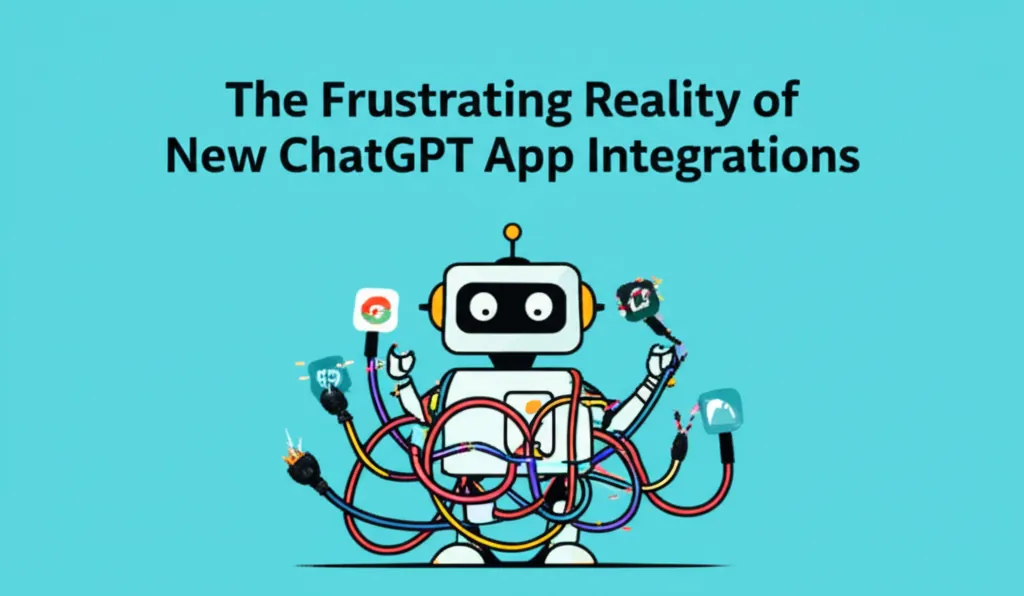Developer Offer
Try ImaginePro API with 50 Free Credits
Build and ship AI-powered visuals with Midjourney, Flux, and more — free credits refresh every month.
Google Gemini Closes The Gap On ChatGPT In AI Battle
The race for AI dominance is heating up, and a recent study suggests the gap between the major players is smaller than you might think. While many see OpenAI's ChatGPT as the undisputed leader, new analysis shows Google's Gemini is a formidable competitor, leveraging Alphabet's massive ecosystem to its advantage.
The Analyst Verdict A Head to Head Showdown
Brent Thill of Jefferies recently detailed a fascinating study conducted by his team to compare the leading AI chatbots. The research pitted Google Gemini against ChatGPT and Perplexity, providing a clear look at their current capabilities. The methodology was straightforward yet comprehensive.
“We took 10 questions. We took our entire research team and we had the team independently go through and use Perplexity, ChatGPT, and Google Gemini. And everyone independently scored what they found, whether it was looking for a laptop, looking for shoes, effectively doing a restaurant search, completely different skills in terms of what we were looking for. And we then ranked it and ChatGPT came out ahead overall on the scoring, but Gemini was right there from Google in a very close position.”
This result is significant, indicating that while ChatGPT may have a slight edge, Gemini is performing at a highly competitive level across a range of consumer-focused tasks.
A Glimpse into a Multi Agent Future
According to Thill, the future of AI isn't about one chatbot to rule them all. Instead, we are heading towards a multi-agent ecosystem where users leverage different AIs for their specific strengths. This vision suggests a more complex and specialized digital assistant landscape.
“We see a future where we’re all going to have multiple agents working for us because all the agents have different strengths and that maybe at one point we’re going to need an agent to manage all the agents because there’s going to be so many great agents. One may be good at booking restaurant reservations, one might be good looking for other, more advanced things. So overall, we’re continued to be bullish about Google’s position in this.”
Googles Strategic Advantage
Google's primary advantage in this AI war is its colossal, built-in user base. With over 1.5 billion monthly users already interacting with its AI-powered Search, Google has an unparalleled pathway to introduce users to Gemini. This seamless integration makes it far easier for users to adopt Gemini than to switch to a new platform like ChatGPT. In contrast, OpenAI's business model is still evolving, with less than 5% of its users currently paying for the service.
Furthermore, Alphabet's financial strength, bolstered by its cloud division, provides a solid foundation for its long-term AI strategy. The company's first-quarter results showed a 28% year-over-year revenue increase in its cloud unit, highlighting the scale and profitability that can fund intensive AI research and development.
Investor Caution Amidst the AI Hype
Despite the bullish outlook from analysts like Thill, not all investors are fully convinced. The Mairs & Power Balanced Fund, for instance, expressed concerns about the potential disruption generative AI could bring to Google's core search business. In their second quarter 2025 investor letter, they outlined a more cautious approach.
“Alphabet Inc. (NASDAQ:GOOG) led underperformance in the Communications sector during the first half of the year as there is increasing concern about the impact of generative AI on Alphabet’s search business and whether it will be able to meaningfully respond. We have been trimming the Fund’s holdings in Alphabet as part of the transition to Amazon but also to reflect lower confidence in the company’s ability to maintain its competitive advantage longer term.”
This perspective highlights the central challenge for Google: successfully navigating the transition to an AI-first world without cannibalizing the search advertising empire that built the company.
Compare Plans & Pricing
Find the plan that matches your workload and unlock full access to ImaginePro.
| Plan | Price | Highlights |
|---|---|---|
| Standard | $8 / month |
|
| Premium | $20 / month |
|
Need custom terms? Talk to us to tailor credits, rate limits, or deployment options.
View All Pricing Details

